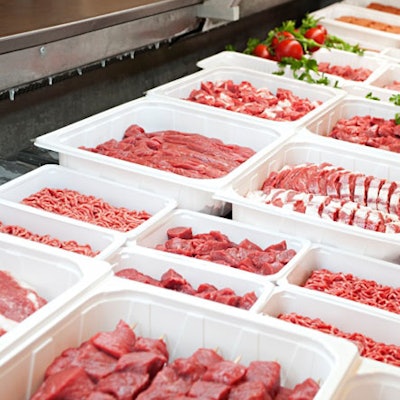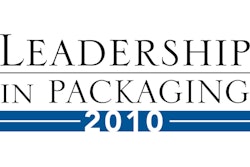
Newly released results of the 2010 National Meat Case Study (NMCS) reveal significant changes in the retail meat case as retailers have responded to evolving consumer needs since the last study took place in 2007. The audit, the fourth of its kind, was funded by Sealed Air’s Cryovac brand; The Beef Checkoff Program, which is administered by the Cattlemen's Beef Promotion and Research Board; and the National Pork Board.
Four major areas showed the most significant changes:
• The big story from the 2010 study was branding. The percent of packages carrying a store brand grew to 36%, tripling since 2004. Store brands have increased significantly across all proteins.
• Consumer information also increased as more packages include nutrition information (61%) and cooking instructions (39%). This year’s audit also captured packages that included country-of-origin labeling and bilingual labeling.
• The amount of case-ready products in the meat case now represents 66% of packages. All proteins are either maintaining or increasing their percentage of case-ready packages over previous audits.
• The percentage of products with a natural claim grew in 2010 to 32%, up 10% from 2004.
"The results from the 2010 NMCS give us great insight into the way the meat case has transformed over the past three years. Our economy has gone through a great deal of change since we performed our last audit in 2007. As a result, these findings can help us to understand some of the implications of that change for the retail meat case," says Jerry Kelly, national retail account manager for Sealed Air's Cryovac brand.
Points out Jarrod Sutton, assistant vice president of channel marketing for the National Pork Board, “This year’s National Meat Case Study showed some major shifts in how retailers are merchandising fresh meat product to their customers. As consumers continue to demand transparency and more information about the products they purchase, we expect to see these numbers shift even more in the coming years.”
Jim Henger, executive director of marketing for the National Cattlemen’s Beef Association, adds: “Another finding in the 2010 study was the increase in value/family packs across several proteins, as retailers met the needs of parents looking to feed their growing families on a budget.”
The NMCS audit included information from 124 retail supermarkets and nine club stores in 51 metro markets across 31 states on various days and at random times. Texas Tech University conducted the bulk of the data collection, and First Stage Marketing provided data analysis.























